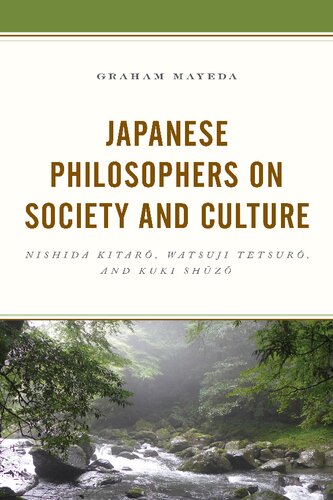

Most ebook files are in PDF format, so you can easily read them using various software such as Foxit Reader or directly on the Google Chrome browser.
Some ebook files are released by publishers in other formats such as .awz, .mobi, .epub, .fb2, etc. You may need to install specific software to read these formats on mobile/PC, such as Calibre.
Please read the tutorial at this link: https://ebookbell.com/faq
We offer FREE conversion to the popular formats you request; however, this may take some time. Therefore, right after payment, please email us, and we will try to provide the service as quickly as possible.
For some exceptional file formats or broken links (if any), please refrain from opening any disputes. Instead, email us first, and we will try to assist within a maximum of 6 hours.
EbookBell Team

0.0
0 reviewsIn every part of the world and in every era, philosophers have reflected on the meaning of culture and its philosophical significance.Japanese Philosophers on Society and Culture:Nishida Kitarō, Watsuji Tetsurō, and Kuki Shūzōexplores how three of Japan's preeminent philosophers of the twentieth century—Nishida Kitarō, Watsuji Tetsurō and Kuki Shūzō—defined culture and analyzed what it tells us about social relations. Graham Mayeda also explores little-known aspects of the work of each philosopher, including a philosophical analysis of Watsuji's travel diary,Pilgrimages to the Ancient Temples in Nara, the place of intuition in Kuki's ethics of otherness, and the role of culture in realizing Nishida's concept of reality as the historical world. Each of these three philosophers adapted philosophical methodologies such as phenomenology, hermeneutics, and dialectical logic to studying the traditional sources of Japanese culture: Confucianism, Buddhism, Bushidō and Shintō. This book focuses on the way that Nishida, Watsuji and Kuki critiqued the methodologies that they adopted from European philosophy and modified them to reflect the values that form the basis of their own cultural tradition. Finally, Mayeda engages with the problem of cultural essentialism by identifying the progressive and conservative elements of each philosopher's characterization of Japanese culture.